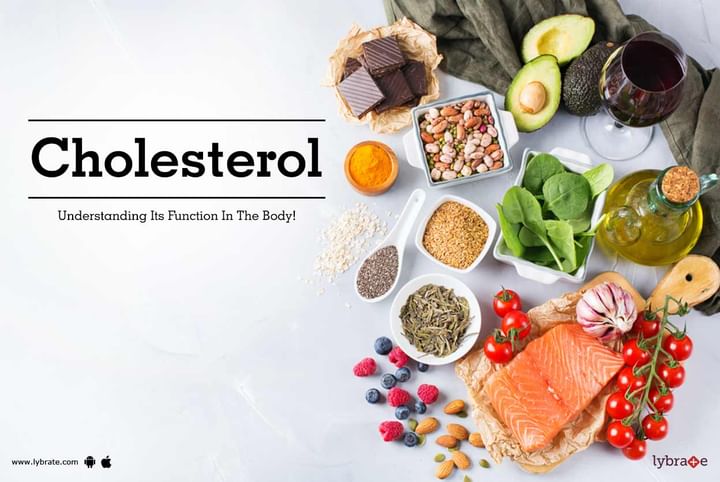Cholesterol - Understanding Its Function In The Body!
Cholesterol is a fatty substance made by the liver and distributed throughout the body. It plays an essential role and is an important ingredient in the various hormones. Most of the cholesterol is made by the liver, and only about 25% is received from the foods that are consumed.
Types:
Based on the density of the cholesterol molecules,
- High density lipoprotein (HDL) which is the good cholesterol
- Low density lipoprotein (LDL) which is the one to be worried about
- Very low density lipoproteins (VLD) which is very bad for health
How it evolves:
Almost all the body systems are affected when there are increased amounts of cholesterol in circulation. The evolution is outlined below.
- Cholesterol circulates in the body normally, and because of its density, it moves sluggishly compared to the other components in the blood.
- Gradually, they settle down along the walls of the blood vessels. This is known as atherosclerosis or plaque formation.
- Over a period of time, this settled plaque accumulates more cholesterol molecules from circulation and continues to grow in size and volume.
- With time, minerals are also attracted and therefore there is hardening of this mass. What also happens is these are along the blood vessels and therefore it becomes narrow, limiting the blood supply.
- When the target organs are vital ones like the brain, kidney, heart, etc., their functioning is affected.
- There could be reduced blood flow to the brain leading to stroke. There could be paralysis on one or both sides depending on which side and part of the brain is affected
- Reduced blood flow to the heart can cause heart attack. They present with severe chest and jaw pain, profuse sweating, and nausea. If left untreated, this can lead to death.
Causes of increased cholesterol: High cholesterol levels can be detected by simple blood tests, which can also identify the type of cholesterol that is increased.
- Modified dietary patterns with increased amounts of saturated fat and sugars
- With obesity on the rise, more and more sugar is converted into fat, thereby increasing the cholesterol levels
- A sedentary lifestyle which has a combination of increased sugar and trans fat consumption with reduced physical activity leads to accumulation of cholesterol
- Stress increases cholesterol as it induces poor eating habits
- Genetic predisposition is another reason for a person to develop high levels of cholesterol. Like obesity, high cholesterol also runs in families.
Treatment: Reducing weight, dietary monitoring, and medications is the way to go. This requires extreme commitment and determination from the individual, as it is not just about reducing it once but to maintain that optimal level going forward.
In case you have a concern or query you can always consult an expert & get answers to your questions!



+1.svg)
